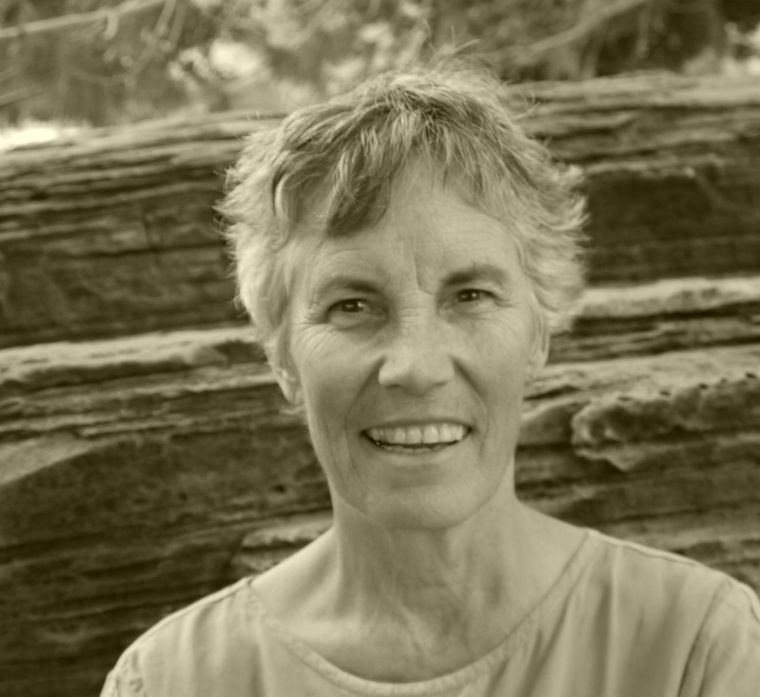One evening when I was about 5, I walked maybe 50 yards into the forest from a tent cabin in Kings Canyon National Park in southern California. It was just before dinner, and I was feeling courageous for walking so far from my family. As I stood still, watching the world, a squirrel ran up my jeans, discovered I wasn’t a tree and sprinted back down away. I loved that. I was almost a tree to that squirrel.
All that can sound incredibly trivial to someone who grew up where open spaces abound, perhaps on a ranch, or near a creek or woods. But I lived in East Los Angeles. My mom was a social worker on Skid Row, with street people; my dad a minister in a small Protestant church. We lived in a house the church owned, and had almost no money, but each summer, for two weeks, dad was able to get us a tent cabin for free in Kings Canyon in exchange for being a preacher for the park’s non-denominational church service held outdoors where the evening ranger talks were offered. I lived for those two weeks each year. I could hear a river at night. I could walk across Crescent Meadow on a fallen giant Sequoia tree. I could see glacial polish on Beetle Rock. I could see bats, and even stars, at night as we walked back from ranger talks. Decades later, my brother, sister and I were talking and agreed those two weeks each year were the favorite part of our entire childhood.
Public lands are the only lands most Americans, for instance that little East Los Angeles girl, will ever own. And more specifically, federal lands are the only lands where grizzlies or wolves might continue to be part of the country we came to inhabit. They are the only lands where we might wander for 40 days in the wilderness to learn who we are and who our relations are.
The West is where we as a nation ceased carving every acre into private parcels, and decided we would keep some large areas intact for the whole nation. Not for Grand County alone. Not for Moab recreation alone. Instead, we decided to keep some land reserved for little kids in East Los Angeles and Detroit and Tuscaloosa who never see anything but other people and buildings and roads everywhere they turn. For greenback cutthroat trout and black bears and alpine cushion plants. For people in Moscow and Sydney and Accra to visit.
The transfer of any United States federal acre to a state (let’s take Utah, for example) suddenly steals that land from every citizen in the nation who doesn’t live in that state. In other words, that little girl and her family in East Los Angeles suddenly lose their land. They lose their ability to weigh in on management of that land through the federal public process we call our National Environmental Policy Act (NEPA). They lose the ability to say, “Hey, wait a moment. Do we really want to tear apart our nation’s shared lands digging for coal and oil and gas and tar sands and oil shale to cook the world?” Do we really want to carve dusty roads into our deserts and shrinking riparian areas and meadows and forests until they look like a black widow spider’s web? (No offense to black widow spiders, but their webs are a real mess).
It’s probably due to those two weeks each year in Kings Canyon that I sought my life’s work among federal lands – with Northwest Coalition for Alternatives to Pesticides, reducing unnecessary, aerial herbicide use on the national forests of Oregon and Washington; for Environmental Law Alliance Worldwide responding to calls from people in Sri Lanka or Ghana or India for help protecting their environments (and by the way, NEPA is the single U.S. law most copied by nations throughout the world). For Hells Canyon Preservation Council, collaborating on a much-improved management plan for the Hells Canyon National Recreation Area in eastern Oregon and western Idaho; and for the past 12 years for Grand Canyon Trust, urging care for national forests, the Grand Staircase-Escalante National Monument, and other BLM lands here on the Colorado Plateau. It’s all a privilege, helping to care for the lands all the little kids in East Los Angeles own.
These federal lands we are fortunate to see every day here in southern Utah belong not only to everyone in our nation, but to those born 100 years from now. If we don’t trade them for a mess of pottage.
Mary O’Brien lives in Castle Valley and works with Grand Canyon Trust, a conservation organization focused on the Colorado Plateau.
To quote from Wikipedia, “The phrase [a mess of pottage] alludes to Esau’s sale of his birthright for a meal of lentil stew(‘pottage’) in Genesis 25:29–34 and connotes shortsightedness and misplaced priorities.”



